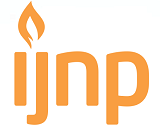Faktor Yang Mempengaruhi Breasfeeding Self Efficacy (BSE) Dalam Pemberian ASI Eksklusif Pada Ibu Hamil Trimester 3
DOI:
https://doi.org/10.18196/ijnp.3188Keywords:
Breasfeeding Self Efficacy, motivasi, dukungan suami, dukungan tenaga kesehatanAbstract
Abstrak
Latar belakang: Pemberian Air Susu Ibu (ASI) merupakan cara yang paling efektif untuk memastikan kesehatan dan keselamatan anak. ASI memiliki manfaat nutrisional dan non nutrisional baik untuk kesehatan anak dan Ibu. WHO merekomendasikan ASI eksklusif sampai usia 6 bulan dilanjutkan sampai 2 tahun. Data WHO menyatakan pemberian ASI eksklusif di ASI tenggara seperti Myanmar mencapai 23,6%, Kamboja 65,2% Indonesia 41,5% jumlah penurunan pemberian ASI eksklusif tidak hanya terjadi di negara maju namun juga terjadi di negara berkembang seperti di Indonesia. Breastfeeding Self-Efficacy merupakan faktor yang paling kuat yang dapat mempengaruhi proses menyusui dan keberhasilan pemberian ASI eksklusif.
Tujuan: Mengetahui Faktor yang mempengaruhi Breasfeending Self Efficacy (BSE) dalam Pemberian Asi Eksklusif Pada Ibu Hamil Trimester 3.
Metode: Penelitian ini merupakan penelitian deskriptif analitik non eksperimental, rancangan cross sectional. Jumlah responden sebanyak 58 responden dengan teknik accidental sampling. Instrumen dalam penelitian ini menggunakan kuesioner. Analisis penelitian dengan uji Kendall,s Tau dan uji Chi-Square.
Hasil: Hasil statistic menunjukkan bahwa factor yang berhubungan dengan Breasfeending Self Efficacy (BSE) adalah motivasi ibu, dukungan suami dan dukungan petugas kesehatan.
Kesimpulan: Adanya hubungan antara motivasi ibu, dukungan suami dan dukungan petugas kesehatan dalam breasfeeding Self Efficacy (BSE). Pelajaran ini memberikan bukti bahwa faktor yang mempengaruhi breasfeeding Self Efficacy (BSE) adalah dibutuhkannya motivasi dari ibu, dukungan suami dan dukungan tenaga kesehatan. Breasfeeding Self Efficacy (BSE) merupakan factor yang paling berpengaruh terhadap proses menyusui dan tercapainya keberhasilan pemberian ASI eksklusif dikemudian hari.
Abstract
Background: The provision of breast milk is the most effective way to ensure children's health and safety. ASI has nutritional and non-nutritional benefits both for the health of children and mothers. WHO recommends exclusive breastfeeding until the age of 6 months is continued for up to 2 years. WHO data states that exclusive breastfeeding in southeast ASI such as Myanmar reaches 23.6%, Cambodia 65.2% Indonesia 41.5%, the decrease in exclusive breastfeeding does not only occur in developed countries but also occurs in developing countries such as Indonesia. Breastfeeding Self-Efficacy is the most powerful factor that can affect the breastfeeding process and the success of exclusive breastfeeding.
Objective: To find out the factors that influence Breasfeending Self Efficacy (BSE) in giving exclusive breastfeeding to trimester 3 pregnant women.
Method: This study is a non-experimental analytic descriptive study, cross sectional design. The number of respondents is 58 respondents with accidental sampling technique. The instrument in this study used a questionnaire. Research analysis with Kendall test, s Tau and Chi-Square test.
Results: Statistical results show that the factors associated with Breasfeending Self Efficacy (BSE) are mother's motivation, husband's support and support from health workers.
Conclusion: There is a relationship between maternal motivation, husband's support and support of health workers in breedingfeeding Self Efficacy (BSE). This lesson provides evidence that the factors that affect Self-efficacy breeding (BSE) are the need for motivation from the mother, husband's support and support from health workers. Breasfeeding Self Efficacy (BSE) is the most influential factor in the breastfeeding process and the achievement of the success of exclusive breastfeeding in the future.
References
Amir, Hermansyah. (2016). Korelasi pengaruh faktor efikasi diri dan manajemen diri terhadap motivasi berprestasi pada mahasiswa pendidikan kimia Unversitas Bengkulu. Naskah Publikasi. Prodi Pend Kimia FKIP UNIB. Bengkulu
Sriramayanti, Cut Ila., dan Devi Darliana. (2018). Self efficacy dengan motivasi dalam menjalani terapi pada pasien stroke. Jurnal. Program Studi Ilmu Keperawatan Fakultas Keperawatan, Universitas Syiah Kuala Banda Aceh. Aceh
Chaplin. (2014). Kamus Lengkap Psikologi. Jakarta: Rajagrafindo Persada
Hapitaria, Shafira. (2017). Hubungan Dukungan Suami Dengan Petugas Kesehatan Dalam Pemberian ASI Eksklusif Di Desa Sumbersari Kecamatan Ngampel Kabupaten Kendal.
Kementrian Kesehatan Republik Indonesia. (2014). Situasi dan Analisis ASI ekslusif. Pusat dan Data Informasi. Jakarta Selatan
Larasati, Rohmah. (2016). Hubungan Dukungan Suami Dengan Keberhasilan ASI Eksklusif di wilayah kerja Puskesmas Jetis Bantul. digilib.unisayogya.ac.id
Purnamasari. Mega Isvandiana. (2014). Hubungan self-efficacy, dan motivasi berprestasi dengan kecemasan mahasiswa yang sedang mengerjakan skripsi. Naskah Publikasi. Program Pasca Sarjana, Universitas Muhammadiyah Surakarta. Surakarta
Novianti et.al. (2016). Dukungan Tenaga Kesehatan Terhadap Pelaksanaan IMD: Studi kasus di Rumah Sakit Swasta X dan RSUD Y di Jakarta. Jurnal Kesehatan Reproduksi. Pusat.
Pradanie, Retnayu. (2015). Paket dukungan terhadap breastfeeding self efficacy dan keberhasilan menyusui pada ibu postpartum. Jurnal Ners Vol. 10 No.1 April 2015: 20-29
Kementrian Kesehatan Republik Indonesia. (2014). Buku Profil Kesehatan Indonesia. www.depkes.go.id
Proverawati. (2010). Gambaran Dukungan Suami dalam Keberhasilan Pemberian ASI Eksklusif di Puskesmas Turi Sleman Yogyakarta. respiratory.unjaya.ac.id
Ratna, Wahyu. (2010). Sosiologi Dan Antropologi Kesehatan Dalam Perspektif Ilmu Keperawatan. Yogyakarta: Pustaka Rihama.
Setiawati et.al. (2014). Hubungan Sikap dan Peran Bidan Terhadap Program Pemberian ASI Eksklusif di Wilayah Kerja Puskesmas Jambu Burung Kabupaten Banjar. Skripsi. Poltekkes Kemenkes Banjarmasin Jurusan Kebidanan
UNICEF. (2017). Infant and young child feeding. Global Database. https://data.unicef.org/topic/nutrition/infant-and-young-child-feeding/
WHO. (2016). Global nutrition report from promise to impact ending malnutrition by 2030. International Food Policy Research Institute. Washington,DC
Downloads
Additional Files
Published
Issue
Section
License
License
Articles published in the IJNP (Indonesian Journal of Nursing Practices) are licensed under a Attribution 4.0 International (CC BY 4.0) license. You are free to:
- Share — copy and redistribute the material in any medium or format.
- Adapt — remix, transform, and build upon the material for any purpose, even commercially.
This license is acceptable for Free Cultural Works. The licensor cannot revoke these freedoms as long as you follow the license terms. Under the following terms:
Attribution — You must give appropriate credit, provide a link to the license, and indicate if changes were made. You may do so in any reasonable manner, but not in any way that suggests the licensor endorses you or your use.
- No additional restrictions — You may not apply legal terms or technological measures that legally restrict others from doing anything the license permits.
Copyright
Authors who publish with IJNP (Indonesian Journal of Nursing Practices) agree to the following terms:
- Authors retain copyright and grant IJNP (Indonesian Journal of Nursing Practices) the right of first publication with the work simultaneously licensed under an Attribution 4.0 International (CC BY 4.0) that allows others to remix, adapt and build upon the work with an acknowledgment of the work's authorship and of the initial publication in IJNP (Indonesian Journal of Nursing Practices).
- Authors are permitted to copy and redistribute the journal's published version of the work (e.g., post it to an institutional repository or publish it in a book), with an acknowledgment of its initial publication in IJNP (Indonesian Journal of Nursing Practices).














